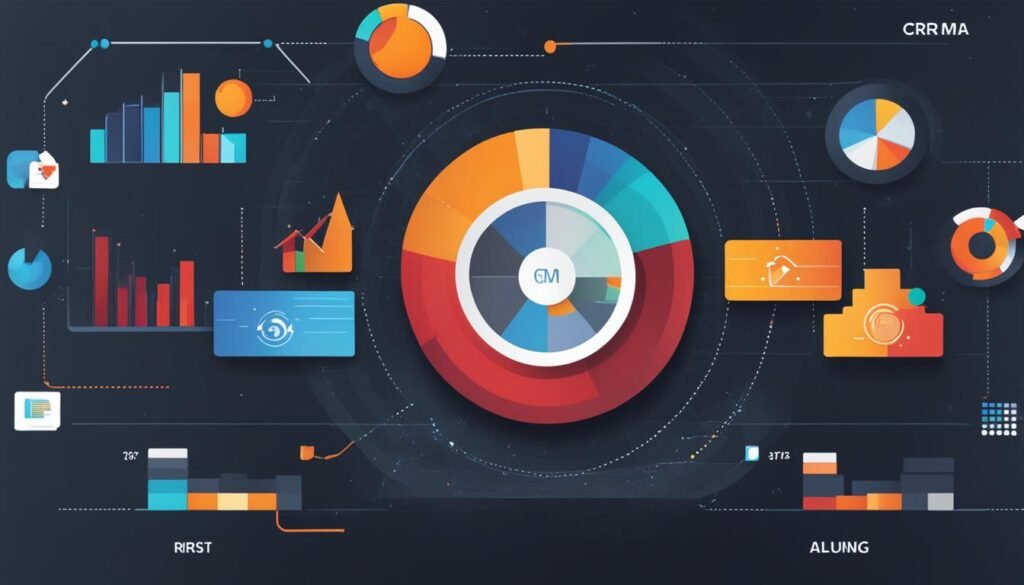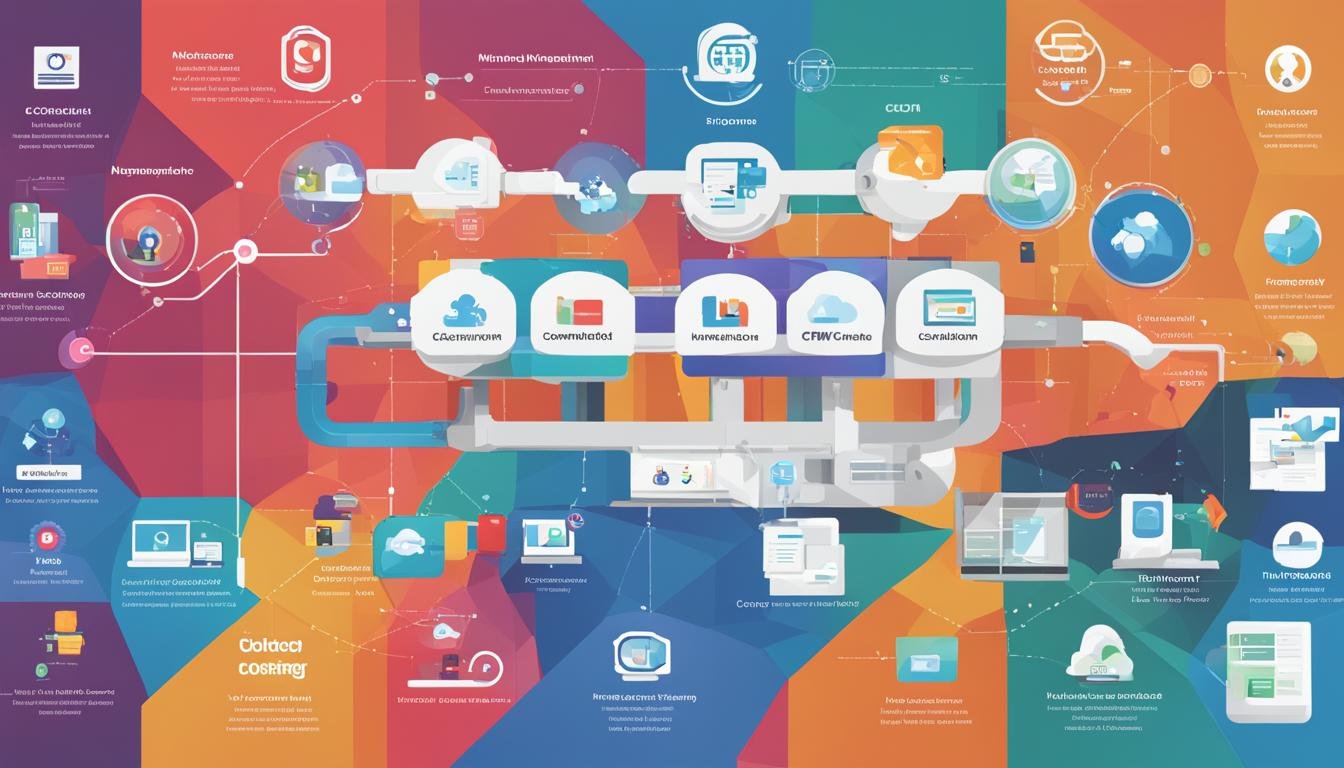In today’s digital landscape, having an effective martech stack is crucial for businesses. A martech stack refers to the collection of marketing technologies that businesses use to support and improve their marketing initiatives. One of the most important components of a martech stack is a CRM, or Customer Relationship Management system. A CRM helps businesses manage their interactions and relationships with customers by providing a central location for storing and managing customer data. It integrates with other tools in the martech stack to provide a comprehensive view of customer data, allowing businesses to streamline processes, automate tasks, and gain valuable insights.
Key Takeaways:
- A CRM is a crucial component of an effective martech stack.
- It helps businesses manage customer interactions and relationships.
- A CRM provides a centralized location for storing and managing customer data.
- Integration with other tools in the martech stack allows for streamlined processes and automation.
- A CRM enables businesses to gain valuable insights from customer data.
Benefits of a CRM in a Martech Stack
A CRM integrated into a martech stack brings numerous benefits to businesses. Firstly, it allows for the consolidation of all customer data in one centralized location. This not only improves tracking capabilities but also enables personalized marketing efforts. With a comprehensive view of customer data, businesses can better understand their target audience and tailor their marketing strategies accordingly.
Additionally, a CRM system provides valuable insights into customer behavior and preferences. By leveraging this data, businesses can make data-driven decisions and fine-tune their marketing initiatives. These insights allow for better targeting, improved customer engagement, and ultimately, higher conversion rates.
Automation is another key advantage of integrating a CRM into a martech stack. By automating repetitive tasks and workflows, businesses can streamline their operations and improve overall efficiency. This frees up valuable time and resources, allowing teams to focus on more strategic initiatives and driving business growth.
Importance of Data Integration in a CRM
Data integration plays a vital role in maximizing the effectiveness of a CRM within a martech stack. By seamlessly integrating a CRM with other tools and technologies, businesses can ensure consistent data across platforms and create a unified view of customer information. This eliminates the risk of data silos and enables businesses to segment their customer base for targeted, personalized marketing communications. With a centralized source of customer data, businesses can make more informed decisions and gain a deeper understanding of their customers’ needs and preferences.
Integrating data in a CRM allows businesses to harness the power of a comprehensive customer view. By combining data from various sources, such as website interactions, social media engagement, and email campaigns, businesses can gain valuable insights into customer behavior and preferences. These insights can inform marketing initiatives and drive better results. With a CRM that is effectively integrated into a martech stack, businesses can create tailored marketing campaigns, personalized customer experiences, and foster long-term customer relationships.
Streamlining Processes and Ensuring Consistency
One of the key benefits of data integration in a CRM is the ability to streamline processes and ensure consistency. With data integration, businesses can eliminate manual data entry tasks, automate workflows, and reduce the risk of errors. This allows for more efficient operations and frees up time for marketers to focus on strategic initiatives. Moreover, having consistent data across platforms enables businesses to provide a seamless customer experience, as customers can move seamlessly between different touchpoints without encountering inconsistencies or disruptions.
Data integration in a CRM is essential for businesses looking to leverage the full potential of their martech stack. By integrating data from various sources and ensuring consistency, businesses can unlock valuable insights, streamline processes, and create personalized experiences for their customers. With a well-implemented CRM system and effective data integration, businesses can make informed decisions, enhance their marketing strategies, and drive business growth.
Data Management and Security in a CRM
A CRM system plays a crucial role in the overall data management strategy of a business. With the increasing importance of data in today’s digital landscape, it is essential to have a robust CRM solution in place to store and manage customer data effectively. By using a CRM, businesses can ensure that customer data is stored in a consistent and secure manner, minimizing the risk of data breaches.
One of the key benefits of using a CRM is that it provides a centralized location for storing customer data, making it easily accessible to relevant stakeholders within the organization. This eliminates the need for multiple data sources, reducing the chances of inconsistencies and errors. Additionally, a well-implemented CRM system helps businesses comply with data protection regulations, ensuring that customer data is handled responsibly and ethically.
Data Security
When it comes to data security, a CRM offers features that protect sensitive customer information from unauthorized access. These features include data encryption, user authentication, and role-based access control. By implementing these security measures, businesses can maintain the confidentiality and integrity of their customer data, building trust with their customers and stakeholders.
Furthermore, a CRM system allows businesses to define and enforce data management policies, ensuring that data is used in accordance with privacy regulations and internal policies. This helps businesses maintain compliance and reduces the risk of penalties or legal issues related to data privacy.

Closing Thoughts on CRM in a Martech Stack
In conclusion, integrating a CRM into a martech stack is essential for businesses looking to enhance their marketing efforts and make data-driven decisions. A CRM serves as a centralized hub for customer data, allowing businesses to streamline processes, automate tasks, and gain valuable insights.
By properly integrating a CRM with other martech tools, businesses can have a more holistic view of customer data, enabling them to optimize their marketing strategies. With a well-implemented CRM system, businesses can strengthen customer relationships, drive business growth, and achieve better results.
It’s important for businesses to consider the role of a CRM in their martech stack. By leveraging the power of a CRM, businesses can effectively manage customer interactions, personalize marketing efforts, and make informed decisions based on accurate and reliable data. Investing in a robust CRM system is a smart move for businesses seeking to stay ahead in today’s data-driven marketing landscape.
FAQ
What is a martech stack?
A martech stack refers to the collection of marketing technologies that businesses use to support and improve their marketing initiatives.
What is a CRM?
CRM stands for Customer Relationship Management system. It helps businesses manage their interactions and relationships with customers by providing a central location for storing and managing customer data.
What are the benefits of integrating a CRM in a martech stack?
Integrating a CRM in a martech stack offers benefits such as better tracking and personalized marketing efforts, valuable insights into customer behavior and preferences, automation of tasks, and improved collaboration between sales and marketing teams.
Why is data integration important for a CRM in a martech stack?
Data integration ensures consistent data across platforms, minimizes the risk of data silos, and provides a unified view of customer information. It also enables businesses to segment their customer base and send targeted, personalized communications.
How does a CRM contribute to data management and security?
A CRM should be used to store and manage customer data in a consistent and secure manner, minimizing the risk of data breaches and ensuring compliance with data protection regulations.
What insights can a CRM provide businesses?
A CRM delivers real-time, data-driven insights into customer behavior and preferences, which can inform and improve marketing initiatives. It can provide insights into purchase patterns, website behavior, and engagement with marketing communications.
How does a CRM help with reporting and ROI tracking?
A CRM offers a complete view of customer interactions, allowing businesses to measure the effectiveness of their marketing initiatives. By tracking key metrics and analyzing data, businesses can refine their strategies and optimize their marketing efforts.
What role does a CRM play in a martech stack?
A CRM plays a crucial role in an effective martech stack by providing a centralized location for storing and managing customer data, streamlining processes, automating tasks, and providing valuable insights. It helps businesses optimize their marketing efforts, strengthen customer relationships, and drive business growth.

